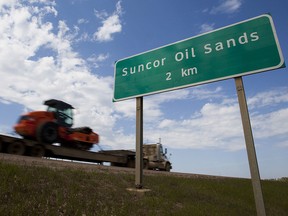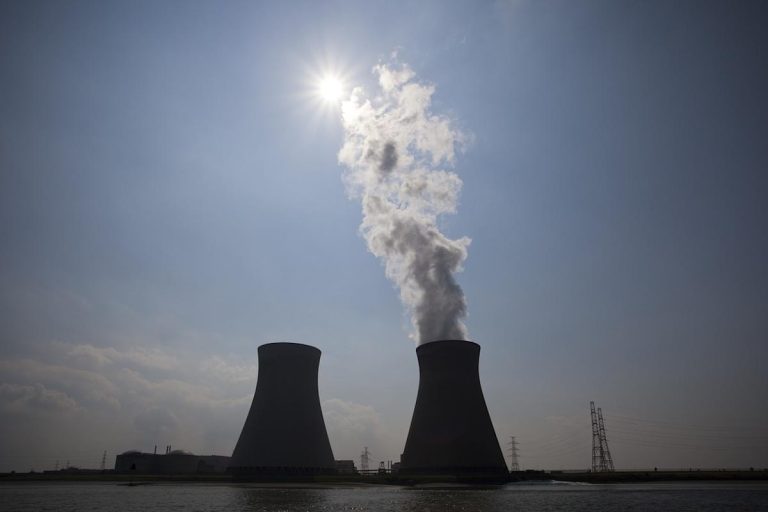Energy executives call for government to use emergency powers to speed oil and gas projects

Article content
More than a dozen Canadian oilpatch executives have signed an open letter calling on federal political leaders to declare a Canadian energy crisis and to designate key projects in the “national interest” in order to speed expansion of oil and natural gas infrastructure.
Article content
Article content
The letter said Ottawa should use its emergency powers to overhaul regulations and to speed the timeline for approving major projects to within six months for new oil and natural gas pipelines and liquefied natural gas (LNG) terminals.
Advertisement 2
Article content
“We are at a turning point in Canada’s history and national interest,” the letter to the leaders of the Liberal, Conservative, Bloc Québécois and New Democratic parties said. “Canadians increasingly see the importance of using our abundant energy to ensure Canada can defend its sovereignty, play a role in the world as a force for good and improve our overall economic competitiveness and prosperity.”
The letter also urged the federal industrial carbon tax be repealed, suggesting it handicaps the sector’s competitiveness and that Ottawa should leave it up to provincial governments to set “more suitable” carbon regulations, which is a position that would seem to signal cracks have emerged in the sector’s previous consensus around carbon pricing.
Signatories to the letter included the chief executives of Canada’s major oil and gas producers, Canadian Natural Resources Ltd., Suncor Energy Inc., Cenovus Energy Inc. and Imperial Oil Ltd., as well as the heads of the four largest pipeline companies, including Enbridge Inc. and TC Energy Corp.
“Today, the federal government does not have the right policies, or the regulatory framework to support oil and natural gas investment,” TC Energy chief executive François Poirier said in a statement on Wednesday. “Delays in permitting processes for critical infrastructure often results in billions in lost economic opportunities for Canadians. It’s time for change. These are barriers we have imposed on ourselves that need to be removed now.”
Article content
Advertisement 3
Article content
Canada’s political leaders are preparing for another potential showdown with the Donald Trump administration over tariffs scheduled to be implemented on April 2.
The spat over tariffs and Trump’s increasingly aggressive rhetoric have sparked renewed political and public interest in diversifying the country’s trading partners and fuelled discussions of reviving abandoned pipeline projects in Canada such as Energy East and Northern Gateway.
“If we had been successful as Canada in building these pipelines, I would argue this present tariff fight with the U.S. would have been reduced to the level of an inconvenience, rather than the existential threat it represents to Canada if we can’t solve it,” current Cenovus executive chair and former chief executive Alex Pourbaix said prior to the letter’s release.
The CEOs propose changing policies that have been deeply unpopular in the oilpatch, including overhauling the Impact Assessment Act (Bill C-69) for major projects and changing rules such as the oil-tanker ban on British Columbia’s north coast.
They also want the federal government to eliminate its “unlegislated” cap on oil and gas emissions and provide loan guarantees to enable Indigenous investment and ownership in projects.
Advertisement 4
Article content
The call to repeal the federal industrial carbon levy may also reflect growing concern in the Canadian oilpatch over the risk of capital flight to the United States amid an unprecedented regulatory rollback under the Trump administration.
Conservative Leader Pierre Poilievre earlier this week said he would scrap the industrial carbon tax, including the so-called “federal backstop” that requires increases to the minimum price on carbon pollution under provincial emissions plans, such as Alberta’s Technology Innovation and Emissions Reduction (TIER) system.
Removing the backstop would allow provinces to decide whether to keep the current schedule, which hikes the price by $15 per tonne annually until 2030, or modify or scrap it altogether.
The press secretary for Alberta’s minister of the environment on Monday said that “no decision has been made” by the province about what it would do if an elected government in Ottawa were to remove the backstop. Alberta is slated to complete a legislated review of TIER by the end of 2026.
“I’m not aware of any major oil- or gas-producing nation anywhere in the world that has imposed the carbon tax at the level that Canada has,” Pourbaix said.
Advertisement 5
Article content
“If we were to impose massive costs on the industry that no other country in the world is imposing on their energy sector, you’re going to make the Canadian energy sector less competitive and that’s going to have huge impacts on the nation. That’s just a fact.”
Recommended from Editorial
• Email: mpotkins@postmedia.com
Bookmark our website and support our journalism: Don’t miss the business news you need to know — add financialpost.com to your bookmarks and sign up for our newsletters here.
Article content










